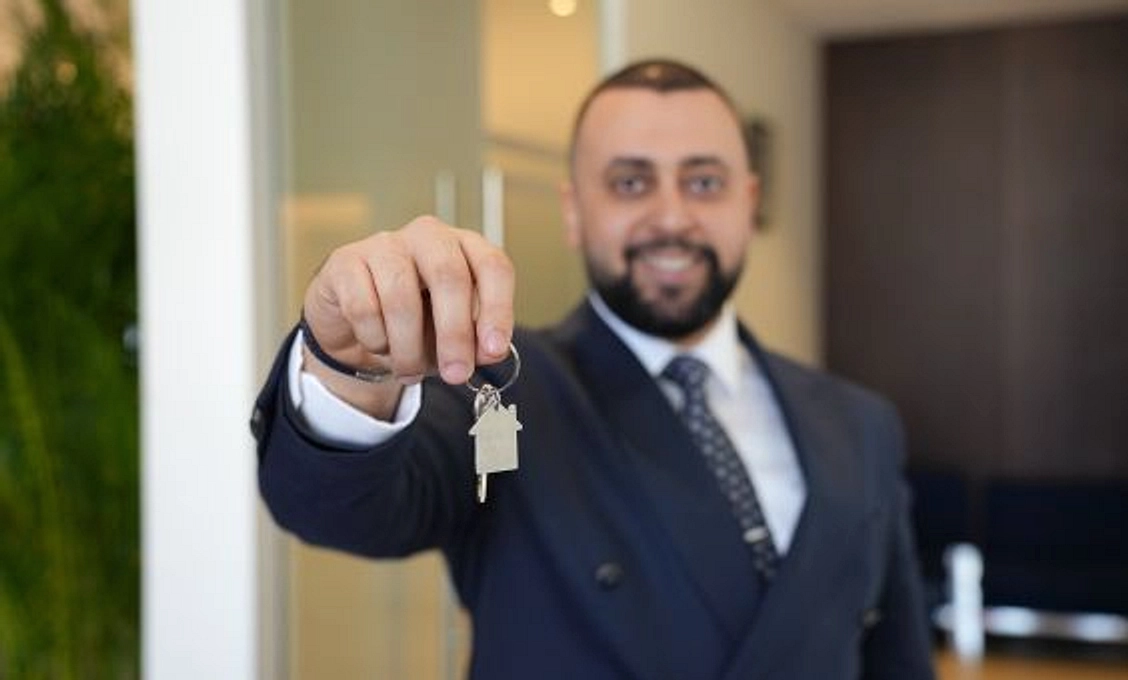Signature Collection
Explore SignatureThe UAE, particularly Dubai, is a global real estate hub, attracting both residents and international investors. Whether you are a UAE resident or a non-resident, the allure of investing in Dubai’s real estate market is strong. However, the mortgage application process and terms can differ significantly between the two groups. Let’s take a closer look at the key differences between mortgages for UAE residents and non-residents. This article provides a complete lowdown on how expats and foreign investors can access home loans in the UAE.
Dubai Mortgage for Non-Residents Vs Residents
When it comes to applying for a mortgage in Dubai, UAE residents generally follow the same path as non-residents. Let's break down the key factors to understand Dubai mortgages for both non-residents and residents more clearly.
How Much Can They Borrow?
- UAE Residents: Typically, residents are eligible for higher LTV ratios. This means they can borrow up to 80% of the property value, especially first-time buyers.
- Non-Residents: Non-residents can secure a loan for up to 60% to 70% of the property’s value, depending on the lender.
Interest Rates
- Residents: Interest rates range from 4.5% to 6.5%, depending on the bank, income, and loan type.
- Non-Residents: Interest rates are almost the same for non-residents, ranging from 4.6% to 6.5%.
Documentation Requirements
- UAE Residents: The documentation process is relatively straightforward, requiring proof of employment, income, residency visa, and bank statements.
- Non-Residents: Additional documentation such as proof of income from the home country, tax returns, and foreign bank statements may be required for non-residents. Banks may also request other documents depending on your overall portfolio.

Approval Time
- Residents: Pre-approval can take anywhere from a few hours to 10 working days.
- Non-Residents: The approval process for non-residents seeking a mortgage in the UAE typically takes 4 to 15 days to complete the initial pre-approval. However, the full mortgage process, including document submissions, evaluations, and final approvals, can extend to 5 to 6 weeks.
Down Payment
- Residents: The minimum down payment requirement for expatriate mortgages is 20% for properties valued up to AED 5 million.
- Non-Residents: The down payment requirement is generally higher, with most banks requiring a minimum of 40% to 50% of the property's value.
Mortgage Eligibility for UAE Residents vs. Non-Residents
UAE Residents
- Eligibility criteria for UAE residents are more lenient, primarily due to their local presence. They usually need:
- A stable job in the UAE or a UAE-based business.
- A minimum monthly income that must be derived from within the UAE (often starting from AED 10,000).
- A good credit history within the UAE.
- Age restrictions: typically between 21 and 65 for salaried individuals, and up to 75 for self-employed applicants.
- Resident visa holders must provide bank statements and salary slips.
- The property being financed must be from an approved developer or project list by the bank.
Note that simply having a resident visa is not enough; the bank will verify that your income is derived from within the UAE. If it is generated outside the UAE, you might not be eligible to apply for a home loan as a resident.
Non-Residents
For non-residents, eligibility criteria are more stringent:
- Must be a citizen of a country on the bank's approved list to apply for a non-resident mortgage.
- Applicants must be salaried or self-employed.
- The minimum monthly income requirement can vary depending on the bank. Some banks require a minimum monthly income of AED 15,000 (post-tax) for mortgage eligibility.
- The property must be from a bank-approved developer or project before applying for a mortgage.
Plan ahead by securing mortgage pre-approval before arriving in the UAE to search for property. This simplifies the process and ensures you can focus on finding the right property without delays and get the best mortgage rates.
You can rely on Provident Mortgage Services to handle the entire process for you, from pre-approval to securing the best mortgage deal, making your property purchase experience seamless and stress-free.

Home Loan Options for Non-UAE Residents and Residents
There are various home loan options for foreign investors in the UAE as well as for the residents. Here are a few popular choices you can consider:
- Fixed-Rate Mortgages: The interest rate remains constant for a set period, typically 1-5 years.
- Variable-Rate Mortgages: Interest fluctuates with market rates, offering flexibility but more risk.
- Interest-Only Loans: Only interest is paid for a period, with principal deferred.
- Off-Plan Financing: Loans available for under-construction properties.
- Offset Mortgages: Link savings to reduce interest payable.
- Islamic Home Financing: Sharia-compliant options like Ijarah or Murabaha.
Our detailed article on UAE mortgage regulations can help you better understand home loan options and other considerations.
Fractional Investment Option: Prepco by DAMAC
In addition to traditional mortgage options for residents and non-residents, investors may consider PRYPCO, DAMAC’s fractional investment initiative. PRYPCO allows investors to purchase a share of high-end properties, offering a more accessible entry point into Dubai's luxury real estate market.
This option is ideal for those seeking to diversify their portfolio without committing to full ownership. Similar to standard mortgages, PRYPCO provides an opportunity for both UAE residents and non-residents to benefit from Dubai's thriving property sector at a lower initial cost.
In conclusion, there isn’t a significant difference between mortgage options for UAE residents and non-residents. Given the competitive rates and favorable loan structures, it’s a great time for both residents and non-residents to invest in Dubai's booming real estate market, making it an attractive opportunity to establish or grow property portfolios.
FAQs
While non-residents do not need to stay in the UAE during the mortgage application process, they are usually required to visit for certain stages, such as signing final documents or the mortgage offer letter. Using a local agency can help coordinate much of the process remotely, but personal presence may still be required at key points.
Yes, non-residents applying for a mortgage in Dubai may need to provide medical insurance and undergo health assessments, such as life insurance with medical tests, depending on the bank. These requirements ensure coverage for the duration of the loan and can include blood tests or other evaluations. The specifics vary between banks and mortgage types.
Non-residents are often drawn to higher-value properties in Dubai due to lower interest rates, which offer better value for money. This appeal, combined with Dubai's strong real estate market, makes it an attractive option for foreign investors to establish or expand property portfolios.
Yes, joint applications are allowed. Spouses, siblings, parents, and children can apply for a mortgage together.
Yes, some banks may allow you to borrow against your business for a mortgage, depending on the bank's policies and your business financials.
Getting a mortgage is a straightforward process. All you need is proper planning and meet eligibility criteria to securing a home loan in Dubai.
Yes, mortgages in Dubai do have interest. The interest rates can vary depending on several factors, including the type of mortgage, the lender and the borrower's financial profile. Both residents and non-residents may encounter different rates depending on their eligibility, with non-residents typically facing slightly higher interest rates due to the perceived risk.
Yes, the agency fee, DLD fees, and other charges on top of the property amount can add up to 6% of the property value. The good news is that banks can lend up to 80% of the total, including these additional fees, which helps reduce the initial financial burden for buyers.
For more information, get in touch with us at Provident
 Apartments
Apartments Villas
Villas Townhouses
Townhouses Penthouses
Penthouses Commercial
Commercial See All Properties
See All Properties Commercial
Commercial Property Management
Property Management List Your Property
List Your Property Mortgages
Mortgages Conveyancing
Conveyancing Short Term Rentals
Short Term Rentals Property Snagging
Property Snagging Partner Program
Partner Program Currency Exchange
Currency Exchange PRYPCO
PRYPCO Ethnovate
Ethnovate Plots
Plots
